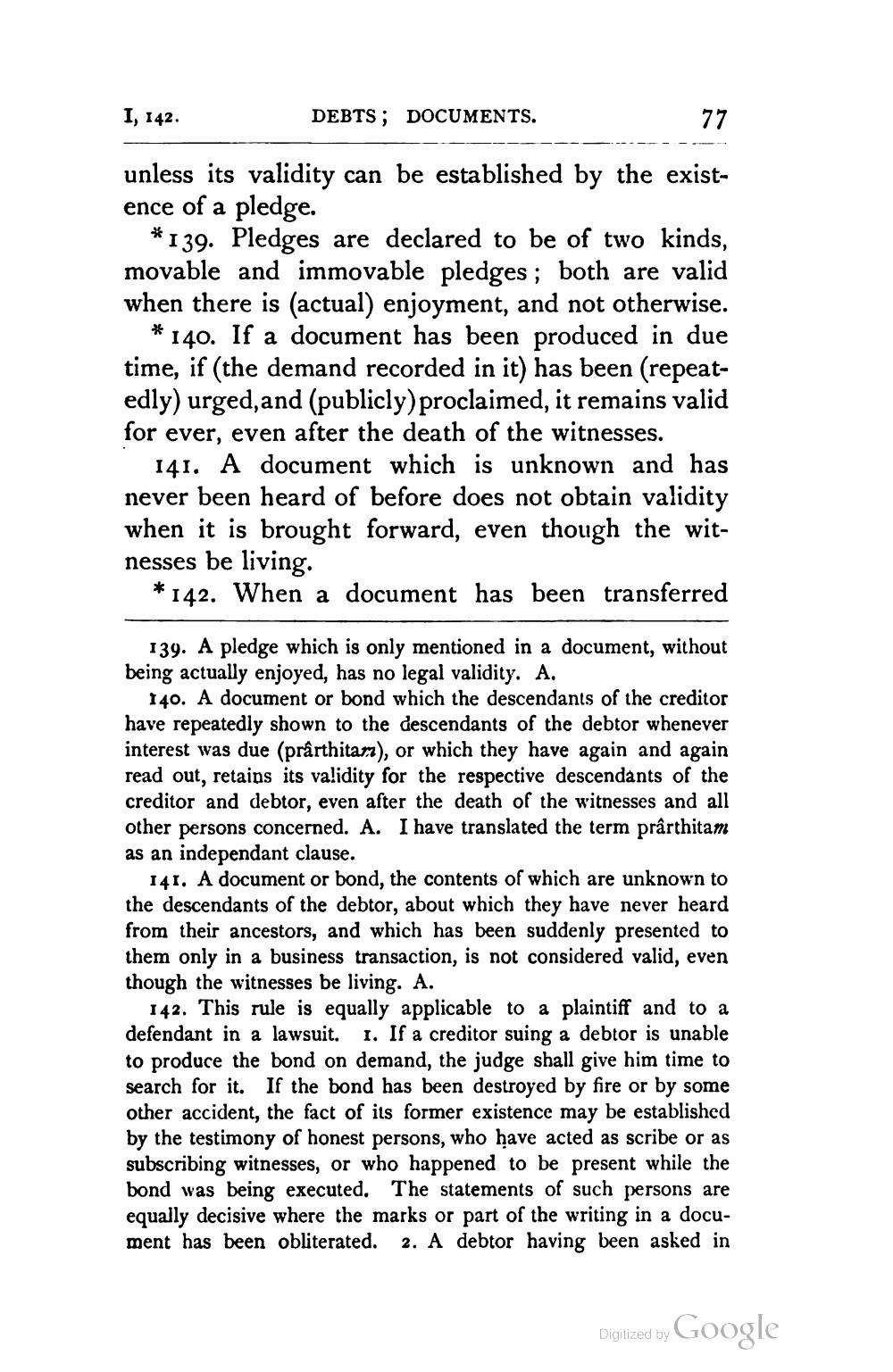________________
I, 142.
DEBTS; DOCUMENTS.
unless its validity can be established by the existence of a pledge.
*139. Pledges are declared to be of two kinds, movable and immovable pledges; both are valid when there is (actual) enjoyment, and not otherwise.
* 140. If a document has been produced in due time, if (the demand recorded in it) has been (repeatedly) urged, and (publicly) proclaimed, it remains valid for ever, even after the death of the witnesses.
141. A document which is unknown and has never been heard of before does not obtain validity when it is brought forward, even though the witnesses be living.
*142. When a document has been transferred
139. A pledge which is only mentioned in a document, without being actually enjoyed, has no legal validity. A.
140. A document or bond which the descendants of the creditor have repeatedly shown to the descendants of the debtor whenever interest was due (prârthitam), or which they have again and again read out, retains its validity for the respective descendants of the creditor and debtor, even after the death of the witnesses and all other persons concerned. A. I have translated the term prârthitam as an independant clause.
141. A document or bond, the contents of which are unknown to the descendants of the debtor, about which they have never heard from their ancestors, and which has been suddenly presented to them only in a business transaction, is not considered valid, even though the witnesses be living. A.
142. This rule is equally applicable to a plaintiff and to a defendant in a lawsuit. 1. If a creditor suing a debtor is unable to produce the bond on demand, the judge shall give him time to search for it. If the bond has been destroyed by fire or by some other accident, the fact of its former existence may be established by the testimony of honest persons, who have acted as scribe or as subscribing witnesses, or who happened to be present while the bond was being executed. The statements of such persons are equally decisive where the marks or part of the writing in a document has been obliterated. 2. A debtor having been asked in
Digitized by Google




